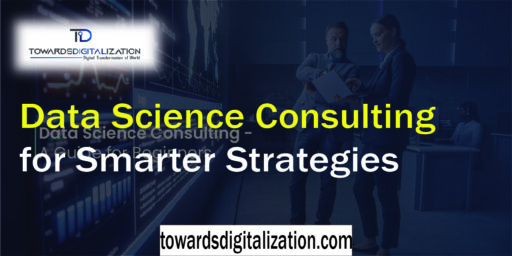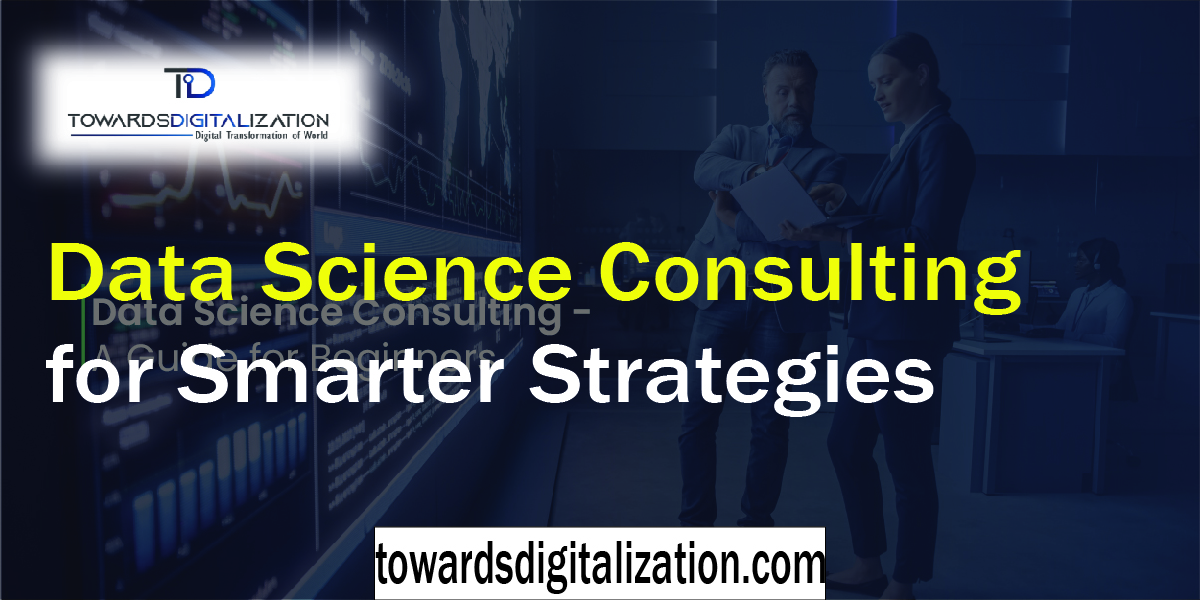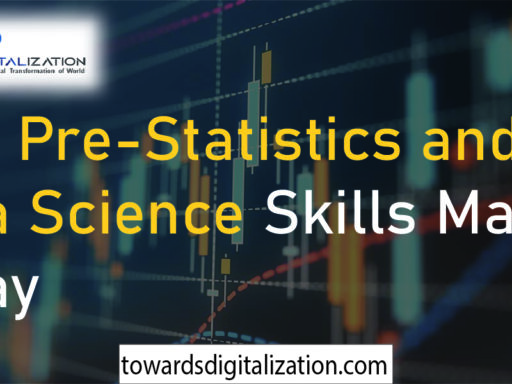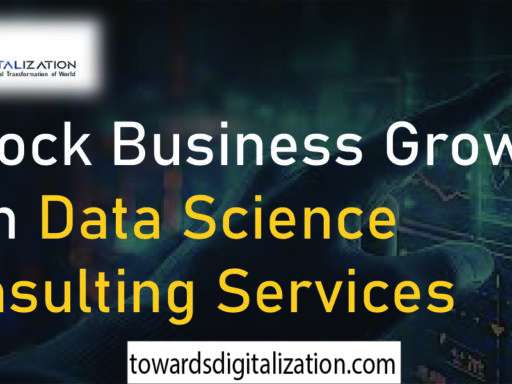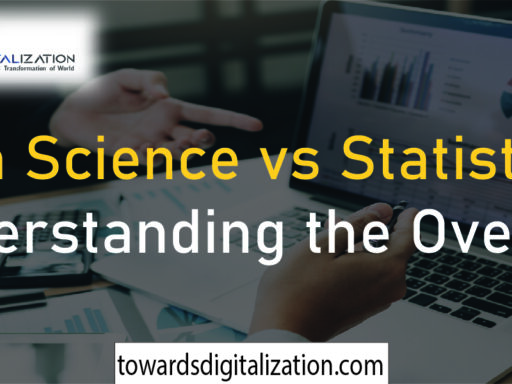Introduction
Data-driven businesses are always searching for an edge and this is why data science has become such an effective tool to increase efficiency, innovation and strategic planning. Utilizing advanced analytics machines, machine learning and big data technologies. Data science consulting help organizations to transform raw data into useful information that allows businesses to optimize operations while opening the possibility of new income streams.
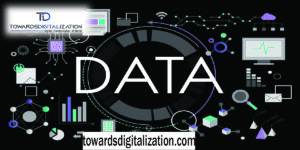
Data science experts begin by assessing a client’s current data infrastructure and goals for business. From there they identify opportunities to enhance decision-making processes, automate processes and predict future outcomes; ultimately helping companies gain an edge in the market while improving operational efficiencies.
Data science consulting bridges the gap between raw data and strategic decision-making. Data scientists collaborate with stakeholders to understand their needs and offer tailored solutions tailored specifically for various industry requirements, whether that is healthcare, retail manufacturing or finance – experts of these fields know exactly how to transform complex data into clear and actionable results.
The Data science consultants offer sustainable and scalable solutions. Typically they build data pipelines, dashboards and AI models which will deliver value over time – through continuous collaboration and receiving feedback they can refine these tools further to maximize their effectiveness.
Data science consulting can transform data into an asset for strategic use. Not only does it provide information, but also supports innovation and flexibility development. As industries expand and shift, their role becomes ever more crucial in making better, data-driven decisions.
Understanding the Role of Data Science Consulting
Beginning by clearly outlining the scope of data science consulting is vitally important. Data science consulting refers to giving expert advice to businesses on collecting, managing and analyzing their data. Consultants offer unique perspectives across different sectors that in-house teams simply cannot.
- Consultants specialize in data science to assist businesses.
- Find data-related opportunities and challenges
- Implement and design data strategies
- Develop predictive models and analytics pipelines
- Visualize and share insights effectively
Additionally, they collaborate with decision-makers to ensure analytical solutions align with business objectives. Their wide skillset enables them to bridge the gap between complex data technology and practical applications.
Why Businesses Need Data Science Consulting
Businesses often struggle to extract value from data accumulated from sources like sensors, social media customers’ transactions and supply chains – this is when data science consultants come in.
1. Enhancing Decision-Making
Data science consultants play a vital role in improving decision-making. Through machine learning and statistical models, data scientists detect trends, anticipate outcomes and offer solutions based on data that can be implemented into any business strategy – moving businesses away from making intuitive decisions towards strategies backed up with hard evidence.
2. Optimizing Operations
Additionally, consultants identify operational inefficiencies and use data analytics to suggest ways to make improvements. For instance, predictive maintenance models in manufacturing industries reduce downtime by anticipating equipment failure; inventory optimization ensures that appropriate products are in stock at their appropriate moment in retail environments.
3. Gaining Competitive Advantage
Data science consulting helps businesses outwit their competition. By recognizing new trends, understanding customer behavior, and creating products with innovative features that meet these demands, businesses can achieve a distinct competitive edge in the market.
4. Cost Savings and Risk Mitigation
In addition, data scientists can be invaluable tools in cutting costs and mitigating risks. Banks use fraud detection techniques to safeguard against losses while logistics companies optimize delivery routes in order to decrease fuel consumption and speed.
Core Services Offered by Data Science Consultants
Once we understand why businesses seek data science assistance and what services are typically provided by data scientists, let’s review some of their main offerings:
1. Data Strategy Development
Before diving into analytics, experts help organizations establish an effective data strategy. They assess the existing data environment, establish specific goals, and outline an actionable roadmap aimed at meeting business’ vision – ultimately giving businesses direction and clarity.
2. Data Acquisition and Integration
Consultants take great care in collecting and integrating their clients’ data smoothly, selecting reliable sources, suggesting tools, and creating pipelines to collect the information into a central system. This step is vital as poor quality data could compromise analytics processes altogether.
3. Data Cleaning and Prep
Once data collection has occurred, consultants clean it to ensure its accuracy and accessibility. They remove duplicates, fill gaps in raw data formats and transform raw information into structured formats to increase data quality and ensure future use. This process results in increased quality.
4. Exploratory Data Analysis (EDA)
Once consultants have collected clean data, exploratory data analysis is often employed to uncover patterns or trends and any anomalies present within it, which may reveal surprising insights or help formulate hypotheses for further examination.
5. Predictive Modeling and Machine Learning
One of the top services provided to businesses today is predictive modeling and machine learning services. Experts use algorithms powered by machine learning to anticipate future trends, identify fraudsters or anticipate customer behaviors – providing businesses with an edge in the marketplace. These models give businesses an advantage in competing businesses.
6. Data Visualization and Reporting
In order to make information easily understandable, experts use various visualization tools like Tableau, Power BI or Python libraries to simplify information for users with no technical expertise required. They make data more digestible.
7. Business Intelligence Integration
Consultants offer an invaluable service when it comes to incorporating analytics into everyday decisions. They integrate information in existing processes, educate teams and create automated alerts – ensuring maximum benefit from data-driven initiatives.
The Data Science Consulting Process
Though quality can differ depending on which firm is being used, most consulting assignments in data science follow a predetermined procedure. Let’s consider some examples:
Step 1: Discovery Phase
Consultants first meet with key stakeholders of your business in order to assess any current or potential issues, information infrastructure, desired results and desired solutions. Interviews may also take place, documents reviewed and systems audited as a measure of readiness evaluation.
Step 2: Data Evaluation
They then assess their available data based on volume, variety, speed, and reliability criteria in order to ascertain if it can be analysed effectively as well as identify any gaps that need filling in.
Step 3: Solution Design
Based on the results, consultants create a tailored solution. They consider which methods, tools, and models align best with business goals and set specific KPIs and success metrics at this point.
Step 4: Model Development
In this step, consultants devise tests, validate, and examine analytical models in order to improve accuracy and speed. They explore different algorithms and parameters in order to optimize speed and accuracy.
Step 5: Implementation and Deployment
Once models have been validated, they are integrated seamlessly into company systems by consulting firms to ensure users can easily access and implement model results.
Step 6: Monitoring and Optimization
Following their deployment consultants assess the performance of their teams. Based on actual outcomes they adapt their strategies as necessary while also offering regular training and support to internal teams.

Industries Benefiting from Data Science Consulting
Data science consulting services are no longer just limited to tech firms. Numerous industries now rely on these services to increase their competitive edge.
- Retail: consultants offer professional assistance in optimizing price, anticipating demand and creating effective marketing campaigns.
- Finance: Our models have been designed to score credit, assess risk and detect fraud.
- Healthcare: Data science assists healthcare organizations with patient diagnosis, treatment optimization and managing resources effectively.
- Manufacturing: Predictive maintenance, quality control and supply chain analytics are some of the primary uses.
- Telecommunications: Consultants assist companies with analyzing customer churn, network performance and the utilization of services.
- Logistics and Transportation: Both optimizing routes and inventory forecasting are common practices within this industry.
Data science consultants can bring tangible business value across industries by customizing solutions specifically to each sector’s requirements.
Tools and Technologies Used in Data Science Consulting
Consultants employ various tools and techniques in order to effectively provide their services, with some of the more commonly employed ones including:
- Programming languages: Python, R and SQL form the backbone of most data science projects.
- Big Data: Platforms such as Hadoop, Spark and Databricks manage large-scale processing of data.
- Machine Learning Frameworks: Scikit-learn TensorFlow PyTorch and XGBoost are well-established machine learning frameworks used for model creation.
- Data Visualization: Tableau, Power BI, Plotly and Matplotlib provide tools that help visualize data.
- Cloud Services: Amazon Web Services (AWS), Azure and Google Cloud offer flexible infrastructure and storage solutions for data.
- Database Systems: Such as MySQL, PostgreSQL, MongoDB and Snowflake allow the storage and management of data queries for easy analysis.
Experts can use smart application of these tools to quickly and precisely address complex problems.
Challenges in Data Science Consulting
Data science consulting brings many advantages, yet can present many obstacles. Being aware of these can help both clients and consultants better manage engagements.
1. Data Privacy and Security
To begin with, managing sensitive information must adhere strictly to laws such as GDPR or HIPAA. Consultants should implement rigorous security measures in order to protect clients’ personal data.
2. Data Quality Issues
Companies often struggle with outdated, incomplete or inconsistent information that requires consultants to invest time cleaning and processing it to ensure accurate data is produced.
3. Misaligning Expectations
Sometimes stakeholders expect immediate or unrealistic results immediately upon beginning work on a project. Establishing clear communication strategies and goal-setting at the outset can help allay these worries.
4. Integration Difficulties
Integrating models into old systems or across platforms may require technical expertise that consultants possess; thus, effective engineering should be part of the consulting service provided.
5. Change Management
It may be met with resistance from companies when adopting data-driven practices, so consultants must act as change agents by encouraging a culture of collaboration and data literacy.
The Future of Data Science Consulting
As time progresses, demand for data science consulting services will only continue to grow exponentially. A number of tren



